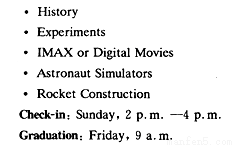根据所提供语境,用方框中所给短语的适当形式填空。(每题1.5分,共15分)
call … up make one’s acquaintance with set about by means of in vain hesitate for a moment in terms of get through occur to have a great impact on |
1. It was in New York that I first _________ Professor Smith.
2.Though she _________, she finally went in and asked to try on a dress that was expensive.
3.________weather, here is a good place for the tour.
4.The picture _____ him ______ the time when he was brought up in the village.
5.One afternoon she ____ riding without an umbrella and was caught in a storm at last.
6.She told her husband that she couldn’t _____ the rest of the housework without his help.
7.After the quarrel, I tried my best to fix the misunderstanding between us, but all my efforts seemed_________.
8.What the teachers have done _______ their students in the future.
9.Our teachers are trying to improve our English _______ listening, reading, writing and speaking.
10.It _____ me that I had left my suitcase in the taxi, in which I came home yesterday.
